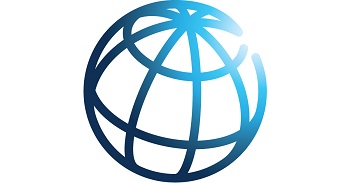KARACHI: Pakistan Stock Exchange above the 98,000 mark on Friday as share prices surged more than 2,000 points in intraday trade
ISLAMABAD: The executive board of the World Bank is scheduled to approve on Thursday $200 million for an emergency project in Pakistan to respond to the coronavirus outbreak and strengthen national systems for public health preparedness.
The project will address critical country-level needs to prevent, detect and respond to the threat posed by coronavirus, and it will support strengthening the country’s national health systems for public health preparedness, and includes mitigation measures in social protection and education to help the poor and vulnerable cope with the immediate impact of the outbreak.
According to details, the project will take a phased approach to respond to COVID-19 and will be implemented across Pakistan. As a first step, the majority of activities will be health sector operations to respond to urgent preparedness and response needs related to the COVID-19 outbreak.
For the health sector operation, while the specific locations where project components will be implemented have not yet been identified the activities to support detection and response to COVID-19 infection will be implemented at screening posts, labs, hospitals and quarantine facilities in urban and rural areas, including border areas.
Measures such as emergency cash transfer, delivery of basic supplies to households, and distant learning will be carried out to mitigate the disruption of social and economic activities, business and livelihood. These activities will be carried out at offices, households and through virtual communities such as radio, television or internet. However, there are considerable social issues of potential exclusion of vulnerable and marginalised groups, harassment/extortion, fraud, and social tensions/conflict that need to be mitigated across all components.
The project management arrangements will anchor on the existing National Immunisation Support Project (NISP) at federal and provincial levels. NISP is currently functioning satisfactorily and is built upon the capacity of the ministry of national health services, regulations and coordination (MONHSRC) and the provincial departments of health through expanded programme of immunisation (EPI) to prevent unnecessary fragmentation and duplication of its roles.
In the project, federal and provincial EPI cells housed in MONHSRC and provincial health departments will be responsible for execution of the health-related project activities on behalf of the ministry and provincial health departments.
You May Also Like
TEHRAN: The head of Iran’s Revolutionary Guards described the arrest warrant issued by the International Criminal Court for Israeli Prime
LOWER KURRAM: The death toll in yesterday’s gun attack on passenger vans in Khyber Pakhtunkhwa’s Lower Kurram has risen to 42,






